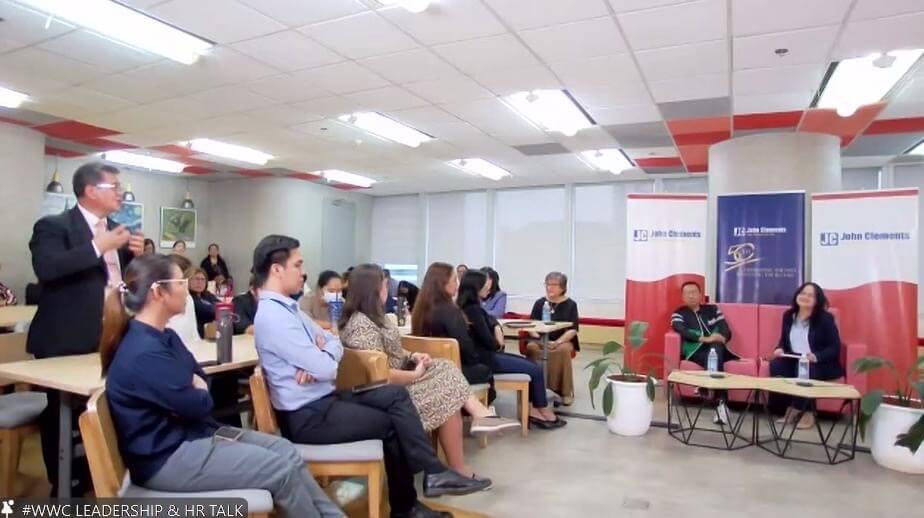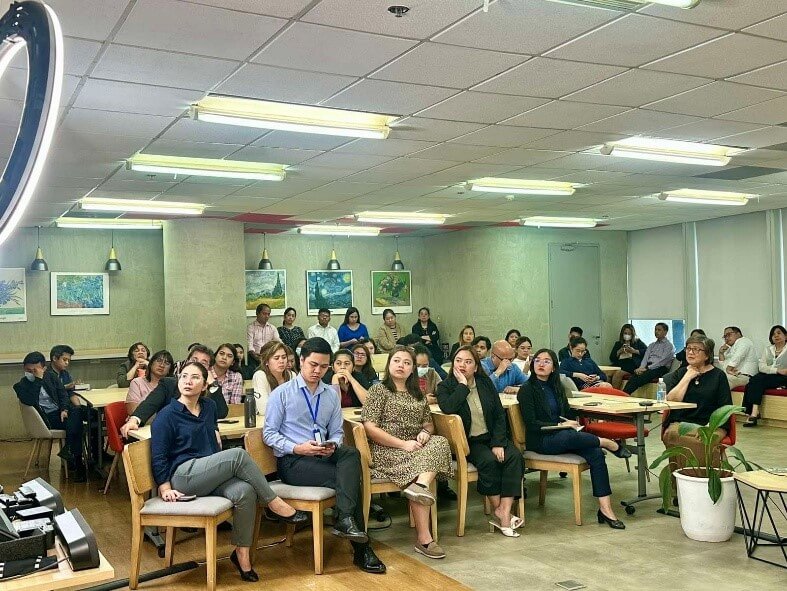The May 29, 2025 session of The Weekly with JC (WWJC) Leadership and HR Series focused on the Fireside Chat: The Future of the Gig Economy – Opportunities and Challenges.
The way people work is being reshaped by the gig economy and nowhere is this shift more apparent than in Southeast Asia. During a recent fireside chat, thought leaders from the Philippines and Indonesia shared their perspectives on how the gig economy is evolving, the opportunities being created, and the systemic challenges that still need to be addressed.

The Gig Economy: On the Rise
It was noted by Ronald Roda, Country Head of Grab Philippines, that the local gig economy remains in its early stages. However, significant growth has been observed, especially through digital platforms like Grab. Thousands of workers across more than 200 cities in the country have been empowered by such platforms, where autonomy and flexible income opportunities are prioritized.
According to Roda, gig workers on Grab’s platform can earn up to twice the minimum wage with an eight-hour workday. But attention is not just being paid to income, long-term support is also being prioritized. Insurance programs have been introduced in collaboration with providers to address the gaps in health and accident protection that gig workers often face.
A Regional Perspective
Insights from Indonesia were provided by Anisa Esa Riani, SVP for Customer Engagement at PT Bank Multiarta Sentosa. It was shared that approximately 30% of Indonesia’s workforce is now made up of gig workers, many of whom operate in conventional face-to-face services. These workers have been increasingly utilized in fields like marketing, promotions, and customer outreach.
From a business standpoint, the use of gig workers has been viewed as both efficient and cost-effective. However, it was also acknowledged that issues such as inconsistent performance and limited understanding of brand identity have posed challenges. “While speed and adaptability are gained,” Riani said, “brand alignment is not always guaranteed.”
The Human Factor
Across the discussion, the concept of autonomy was repeatedly emphasized as a key motivator for gig workers. The ability to control schedules and choose work type has been highly valued by individuals across all demographics. However, it was stressed that this independence must be complemented by proper protections.
>Efforts have been made by companies like Grab to partner with national agencies—such as SSS, PhilHealth, and Pag-IBIG—in a bid to extend benefits to those outside the formal employment system. Still, it was acknowledged by Atty. Guada Vergel De Dios, a compliance practitioner and governance advocate, that regulatory clarity in the Philippines has yet to catch up. The term “gig worker” remains loosely defined, and as a result, minimum protections are not uniformly enforced.
The Role of AI
Artificial Intelligence (AI) and its implications for gig work were also addressed. Riani explained that while certain repetitive tasks could be automated, AI should largely be seen as a tool to enhance gig workers’ capabilities—not to replace them.
By integrating AI tools into platforms, tasks such as content creation, scheduling, and customer research are being streamlined. Suggestions are also being offered by these platforms to help gig workers find roles that match their skills and experience. Still, it was stressed that creativity, empathy, and strategic thinking remain roles for humans.
Educational initiatives have been launched by Grab in collaboration with partners like Ark/Arc, offering technical training and skills development in areas such as urban farming and micro-entrepreneurship—efforts that are aimed at providing gig workers with long-term options beyond the platform.
Culture and Brand Alignment
One of the most complex questions raised was how companies can ensure that gig workers, who are not permanent staff, still reflect a brand’s values and culture. It was shared by Roda that structured onboarding, consistent feedback mechanisms, and community events have been implemented to foster brand alignment among Grab drivers and partners.
On the Indonesian side, training sessions, product briefings, and on-ground audits have been utilized to ensure that gig workers are prepared for customer-facing roles. According to Riani, a deeper level of knowledge transfer is needed. “They are the face of the company in the field,” she said, “so clear communication of expectations is crucial.”


Regulation and the Road Ahead
The need for a well-defined legal framework was consistently raised throughout the panel. The Philippines is considering a Freelance Workers Protection Act. It aims to define roles, standardize contracts, and strengthen worker rights. Demand for clear protections is rising.
The types of work being most influenced by the gig model were also explored. Sectors like content creation, marketing, customer service, and tech support were identified as areas likely to see further gig-based employment.
Banks in Indonesia use gig workers in rural areas for customer acquisition. It’s a cost-effective way to expand reach. However, sensitive roles require strict limits. Gig workers assist with acquiring clients, but financial transactions and data handling remain internal.
The Path Forward
As the session came to a close, emphasis was placed on the evolving identity of gig work. No longer seen as a temporary solution, gig employment is increasingly being recognized as a legitimate and long-term career path.
To thrive in this landscape, workers have been encouraged to invest in personal branding, financial management, and ongoing skill development. Businesses must support and protect gig workers, not just use them. “The gig economy is a third workforce,” Roda said. “It deserves serious recognition.”

Ready to Navigate the Future of Gig Work?
As the gig economy in Southeast Asia continues to evolve, businesses must adapt to stay ahead. John Clements Consultants offers expert workforce solutions to help you harness gig talent effectively and responsibly.
Contact us today to learn how we can support your HR and staffing needs.




